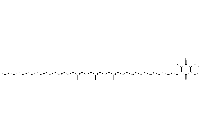Coenzyme Q (CoQ /ˌkoʊkjuː/), also known as ubiquinone, is a naturally occurring biochemical cofactor (coenzyme) and an antioxidant produced by the human body. The human body mainly produces the form known as coenzyme Q10 (CoQ10, ubidecarenone), but other forms exist. CoQ is used by and found in many organisms, including animals and bacteria. As a result, it can also be obtained from dietary sources, such as meat, fish, seed oils, vegetables, and dietary supplements.
CoQ plays a role in mitochondrial oxidative phosphorylation, aiding in the production of adenosine triphosphate (ATP), which is involved in energy transfer within cells. The structure of CoQ10 consists of a benzoquinone moiety and an isoprenoid side chain, with the “10” referring to the number of isoprenyl chemical subunits in its tail.
Although a ubiquitous molecule in human tissues, CoQ10 is not a dietary nutrient and does not have a recommended intake level, and its use as a supplement is not approved in the United States for any health or anti-disease effect.
Biological functions
See also: Q cycle
CoQ10 is a component of the mitochondrial electron transport chain (ETC), where it plays a role in oxidative phosphorylation, a process required for the biosynthesis of adenosine triphosphate, the primary energy source of cells.
CoQ10 is a lipophilic molecule that is located in all biological membranes of human body and serves as a component for the synthesis of ATP and is a life-sustaining cofactor for the three complexes (complex I, complex II, and complex III) of the ETC in the mitochondria. CoQ10 has a role in the transport of protons across lysosomal membranes to regulate pH in lysosome functions.
